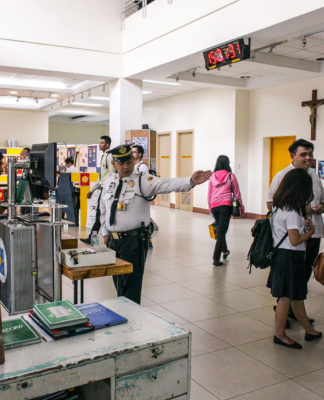MY GENERATION must have been a bit too young to fully know the late Nick Joaquin, who, to most writers, symbolizes an era that is now fading. Most of us probably know him by his “greatest hits” like Summer Solstice, which was made into a movie a few years ago. I wouldn’t have started reading his works if it wasn’t for May Day Eve, which appears to be a staple selection in high school English textbooks.
But those few works we’ve managed to get acquainted with isn’t quite enough to let us know Nick the literary artist, journalist, and historian. For, as many people do not tire of saying it, there is more to Nick than meets the eye, apart from that perspiring bottle of beer he always poses with in most of his photographs.
The sad thing is that nobody realizes how unfortunate my uninterested generation is, especially now that it has become too engrossed in living without regard for the past, which Nick efficiently relives in his writings.
We have no excuse in missing these writings because most of them are everywhere. A majority of the country’s bookstores carry Nick’s popular titles, but these are only hunted when they need to be read for school.
What we don’t know is that these writings give a vivid picture of the country’s past which other cultures have succeeded in blurring. Nick provides valuable information about Manila that most of us do not know in his Almanac for Manileños. One of his earlier short stories, Guardia de Honor, is a Filipino writer’s take on an attempt to change the uncertain future. He also provides a feel of the 1970s in the eyes of a teenager with the novella, Candido’s Apocalypse, which shows Nick’s fascinating use of “kanto” boy slang and other teenage shenanigans, proof that he was never too old to connect with the young.
Fortunately for Thomasians, the late National Artist’s writings, including his entire library, will soon be available at the UST Central Library under the Nick Joaquin section. Nick’s readers can now pick on his brains by reading the books he had collected in his private library and rediscovering those rare writings of his that can never be picked up in any bookstore these days.
The two week-long exhibit on Nick’s life and writings also gives us a rare peek at his private life and work habits. It is amusing to learn that he was a stockholder of San Miguel Corporation, having consumed so much San Miguel Beer in his lifetime. His old Underwood still holds that sheet of paper containing the biography of a business tycoon he was working on before he died in April last year.
But will the Thomasians, excluding the University’s small population of student writers, even bother to see all this?
The problem is that we never learn to get our hands on what is being offered to us. In this case, we are being spoon-fed but we turn our heads away from intellectual grace, distracted by the lure of an irresistible gadget-dominated culture that requires no reading and no deep pondering.
There really is no doubt that the legacy of Nick Joaquin will live on through his writings, which reflect the national identity of this country. We can only do well not to insult his memory by taking his works as an antidote for historical amnesia.

















